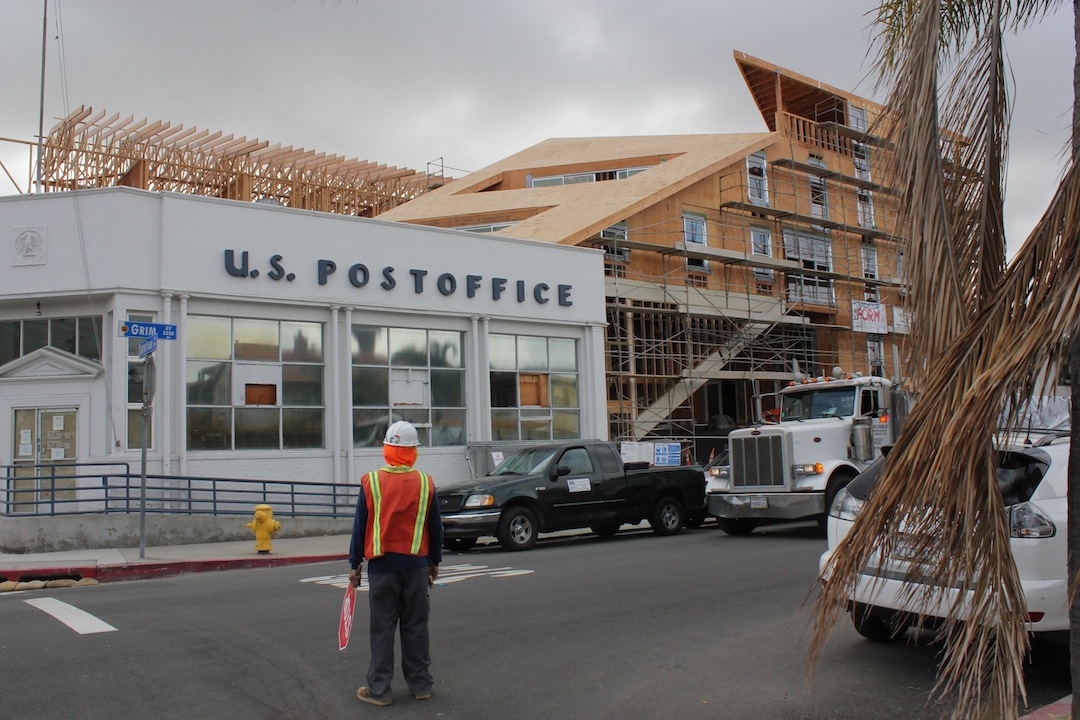SDSU President Stephen Weber leaves a big legacy
San Diego State University President Stephen Weber, who amassed a number of significant accomplishments for the school and suffered some embarrasing controversies during the past 14 years, will retire on July 5, 2011. Weber is the seventh president of the university, which has a student enrollment of about 35,000.
The university announced Weber’s impending retirement last month. Weber personally informed California State University Chancellor Charles Reed of his decision.
“I am so proud of what the people of San Diego State have accomplished over the past 14 years and I look forward to achieving the goals we have set for this coming year,” Weber said in a video message to the campus.
Weber’s departure was not unexpected. He told faculty and staff three years ago that he intended to retire in 2011.
Weber was named president in July 1996. This will be his 15th academic year at the university.
The university compiled several of the accomplishments the university has achieved during Weber’s tenure. Among them:
• Increased academic stature. Dozens of academic programs have been ranked among the nation’s best. SDSU has ranked as the top research university in the nation among schools with 14 or fewer Ph.D. programs for four years running.SDSU faculty members secured more than $150 million in research grants and contracts, a record for the university. Since 1996, SDSU has added eight Ph.D. programs, including two this year in evolutionary biology and geophysics and two doctorates in education, the first independently offered doctoral degrees in the CSU system. The university now has a total of 18 doctoral programs with three new engineering Ph.D. degrees on the horizon.
• Unprecedented student success. As more applications have poured in, the academic qualifications for SDSU’s incoming freshman have increased significantly from a 3.18 average GPA in 1998 (the first year data was available) to a record 3.63 for fall 2010. Average SAT scores have increased from 983 in fall 1998 to 1085 in fall 2010. Graduation rates are also at a record high, increasing 74.2 percent since 1996. For first-time freshmen students who started at SDSU in fall 2003, 66.4 percent graduated in six years or less, well above the national average for four-year public universities of 55 percent (the six-year average is the national reporting standard).
• Community engagement. Under Weber’s leadership, SDSU has seen a sharp rise in private donations to the university. In the past 14 years, SDSU has raised more than $683 million, including more than $65 million in 2009-10, over 300 percent more than was raised in the university’s previous 99-year history. SDSU aims to raise another $75 million by July 2011.
SDSU worked with local school districts to establish the Compact for Success partnership with the Sweetwater Union High School District and the City Heights Educational Collaborative in partnership with San Diego Unified School District, Price Charities and the San Diego Education Foundation. The Compact for Success has helped to transform the Sweetwater district and the program since it was created in 1999 and now serves as a state-wide model for education reform.
SDSU has established itself as one of the nation’s most military-friendly universities. With more than 1,000 veteran, active-duty and dependent students on campus, the university opened the CSU’s first Veterans Center in 2008 and has since opened the nation’s only Veterans House to provide veterans with on-campus housing
• Campus growth. Weber has also overseen a physical transformation of the university, with more than $670 million in new facilities built at San Diego State over the past 14 years, only 25 percent of which has come from the state of California. Among the new buildings are the Parma Payne Goodall Alumni Center and the BioScience Center, both built entirely thanks to the generosity of alumni and community donors and without any state assistance. In addition, this year the university has begun the much-needed renovation of Storm and Nasatir Halls and the construction of a new Aztec Center is set to begin next year.
Controversies also brought some negative publicity to the university during Weber’s presidency. In May 2008, More than 120 people were arrested in connection with selling cocaine, marijuana, methamphetamine and other drugs out of fraternity houses — 75 of them students, according to the District Attorney’s office. Operation Sudden Fall produced the largest campus drug bust in San Diego County History, according to Ralph Partridge, special agent in charge of the Drug Enforcement Administration’s San Diego field office.
In May 2003, Weber announced the resignation of Athletic Director Rick Bay, a few weeks after the California State University auditor concluded an investigation into the athletics department by releasing a report that found state property was misused, programs and funds were mismanaged and other improper activities had taken place in the Athletics department. The university concurred with all of the report’s findings and set timetables for implementing the auditor’s recommendations for addressing the issues. “These concerns require a clear recognition of the problems and an unwavering resolve to ensure that these problems are addressed,” said Weber at the time.
More recently, critics claimed the campus is turning its back on local students after SDSU announced it was ending its admissions preference for most local students. For years local students gained admission despite having lower grades and test scores. Now they must have the same GPA and SAT scores as out-of-area students.
Weber received commendations from local community leaders and politicians, among them Mayor Jerry Sanders. “During his tenure, Dr. Weber guided the university to even greater local importance by engaging in meaningful efforts to tackle real-world problems facing our region,” said Sanders. “The university’s programs to assist the homeless, provide badly needed nurses, address the childhood obesity epidemic and educate our returning veterans are just some of the ways the university helps to improve the quality of life for all San Diegans.”
Said Kit Sickels, chair of The Campanile Foundation: “President Weber has been a true leader, bringing SDSU into a new era and increasing the prominence and reputation of the university. “The university is stronger and more prepared for the future thanks to his good work.”


